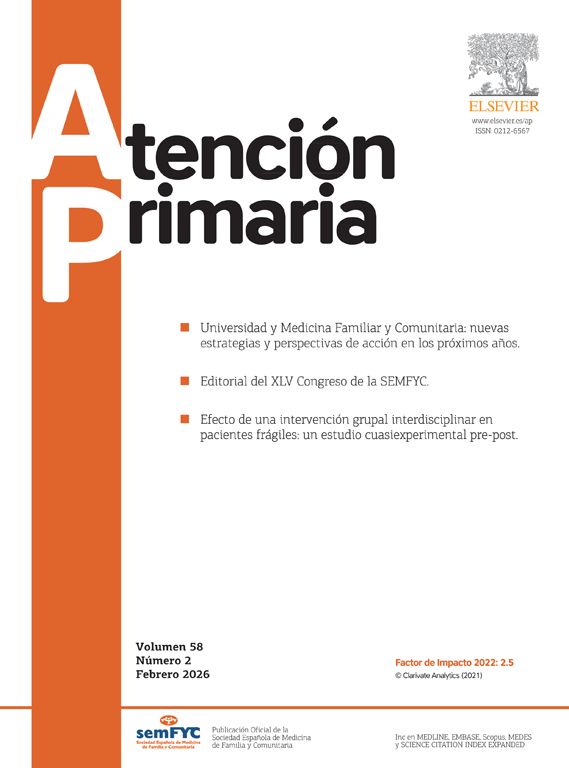The randomised clinical study is the best methodological tool for the evaluation of the safety and efficacy of new drugs as well as other types of therapeutic interventions, and is currently considered as the main source of evidence for medical knowledge on these issues.1 The first randomised clinical trial was published in 1948 and since then thousands of trials have been carried out, many of which have been decisive in the implementation or withdrawal of treatments or diagnostic tests in clinical practice. Other uses include the evaluation of diagnostic tests and interventions applied to the population through health planning and organisation.1 In Spain, clinical trials with drugs for human use are regulated by Royal Decree 223/2004, which establishes the methodological, ethical, and administrative requirements for carrying them out.
Health centres are places where, besides providing health care (in their classic role of prevention, cure, and rehabilitation), teaching, and research should be included. These 3 dimensions are fundamental for practising real medicine in primary care in this century.
Unfortunately, health care normally takes up all the working time in a health centre. This is particularly true in urban centres due to their higher workload. Teaching, in the form of continuing education, is already well-established as routine in many primary care centres. Finally, as we pointed out at the beginning, research is the Cinderella of this triple role that all health centres have to carry out.
Hospitals normally lead health research in Spain. The pharmaceutical industry concentrates its attention in these health centres where the infrastructure and human resources are more favourable. The clinical research ethics committees analyse all the clinical trials of the health area where they just regulate the current rules. So, there are few clinical trials carried out in primary care and the majority are classified within those designated as post-authorisation, and many of them are rejected due to being considered as "sowing" studies where the ultimate aim is to increase the sales of certain drugs. Quality clinical trials in primary care make up 4% of the total of all clinical trials carried out in Spain.2
Quality clinical trials need to be incorporated and consolidated into primary care, and the health professionals must be involved in this task because the rigours of carrying out these studies will automatically result in improving their clinical activity.
In this sense, the study entitled, "Organisational Issues in Implementing Clinical Trials In Primary Care" published in this issue of Atención Primaria, is of interest. In this article the experiences in clinical trials of the professionals who work in primary care health centres are analysed.
The difficulties (lack of time, lack of motivation, lack of training and resources, etc) and the strengths (it is where the most prevalent diseases are treated, there is a continuous relationship with the patients, a privileged position for the natural study of the disease, better access to the population, etc) are currently well known.2,3
It is, therefore, time to take action. The primary care doctors also have a duty to be trained in clinical research and the possibilities of taking part in the development and participating in clinical trials must be offered to them.
Key Points
* The clinical trial is the best source of scientific evidence for evaluating the safety and efficacy of new drugs.
* Primary care must be incorporated and consolidated into quality clinical trials, since this rigour subsequently results in improved health care.
* The primary care doctors also have a duty to be trained in clinical research and they should be offered the possibility of developing and participating in clinical trials.






